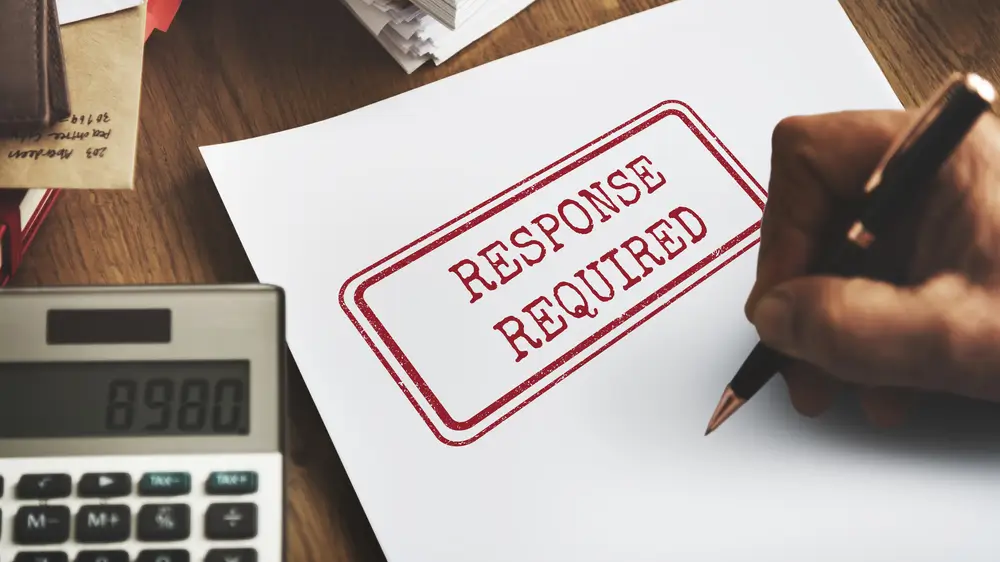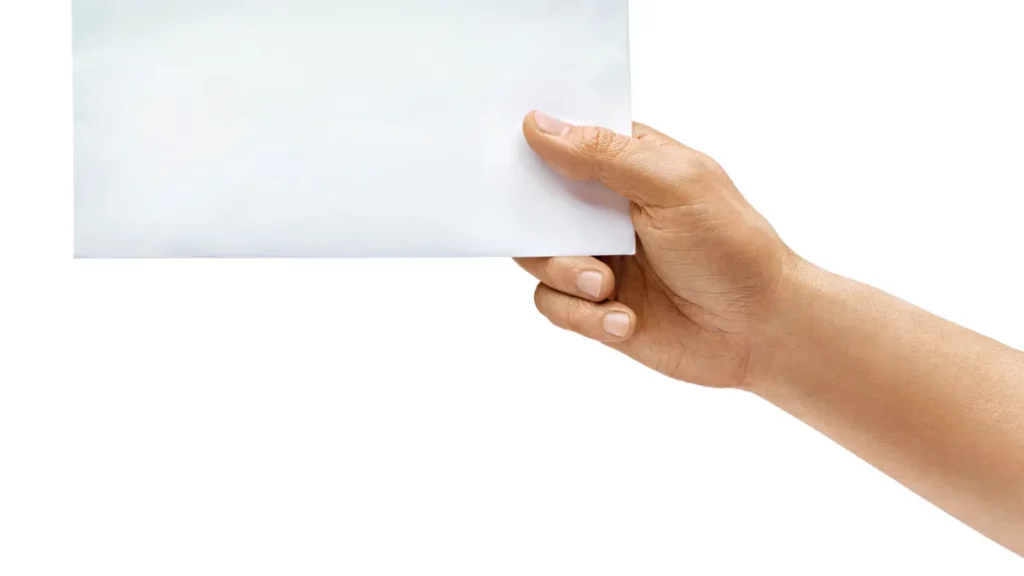
This site is reader-supported. We may earn a small commission if you make a purchase from one of our partners.
Have you ever wondered how to respond to a Cease and Desist letter? It can be terrifying and stressful to be staring down a demand letter from an individual or business, but the steps you take after can make all the difference.
This article will show you how to respond to a cease and desist letter, the actions you should take before writing your draft, and whether you need to consult an attorney.
Let’s get into it.
What is a Cease and Desist Letter?

A Cease and Desist letter is typically sent when an individual or business believes you infringe on or violate their legal rights. The letter will demand that you stop a specific behavior and outlines the consequences of non-compliance. These consequences typically come as a threat of further legal action.
However, it’s important to know that receiving a Cease and Desist letter isn’t the end of the world, because…
Are Cease and Desist Letters Enforceable?

Cease and Desist letters are not binding legal documents, meaning the sender cannot force you to comply with their demands. However, if you continue the behavior outlined in the letter after receiving it, the sender may have a stronger case against you if they choose to take legal action.
It’s also important to know that a Cease and Desist letter isn’t always sent because someone plans to take legal action. Sometimes, the sender may want to scare you into stopping the behavior in question.
Common Types of Cease and Desist Letters

There are several common types of Cease and Desist letters that can be sent. Chances are, any letter you receive will fall into one of these categories:
Intellectual Property Infringement
This type of letter claims that you’re using someone’s intellectual property without permission. This alleged infringement could be anything from using a photo without the owner’s consent (copyright infringement) to selling products with unlicensed trademarks (trademark infringement) to using someone’s patented invention or process (patent infringement).
While it’s unusual to receive a letter of this type from an individual, it’s one of the most common Cease and Desist letters sent by businesses.
Defamation
A Defamation Cease and Desist letter claims that you’ve made false statements about the sender that have harmed their reputation. This type of letter is most commonly sent after someone makes damaging statements about a person or business online, but it can also be sent in response to print or broadcast media.
There are two types of defamation: slander (spoken defamation) and libel (recorded defamation). In either case, it can be a serious accusation.
Harassment
A Harassment Cease and Desist letter claims that you’ve sent threatening, harassing, or otherwise offensive communications to the sender. This type of letter is most commonly sent in response to online harassment but can also be sent after repeated unwanted phone calls, text messages, or email communications.
Property Concerns
This type of letter claims that you’re violating the sender’s property rights in some way. This could include trespassing on their land or illegally dumping waste on their property. It can also include property encroachment (building on or over someone’s property) and disputes with a Home Owner’s Association (HOA).
Contract Problems
If you’re accused of breaching a contract, you may receive a Contract Cease and Desist letter from the other party. This type of letter typically claims that you’ve violated the terms of a written agreement, such as a lease, loan document, or business contract.
This type of letter can also be sent if you are interfering with someone else’s contract as a third party (tortious interference).
Actions to Take if You Get a Cease and Desist Letter

If you’ve received a Cease and Desist letter, here are some recommended steps to follow:
Don’t Panic
The first thing you need to do is take a deep breath and relax. This type of letter can be scary, but it’s important to remember that it’s not a legal document. The sender is simply trying to scare you into stopping the behavior in question.
Don’t Ignore It
While you shouldn’t panic, you also shouldn’t ignore the letter. This will only make the situation worse. The sender may interpret your silence as an admission of guilt and could choose to take legal action.
Read It Carefully
Once you’ve calmed down, it’s time to read the letter carefully. Pay close attention to what the sender is accusing you of and their demands. This will help you understand whether the demand has merit.
Determine the Validity of the Demand
After you’ve read and understood the letter, it’s time to determine whether the sender has a valid claim. This will require some research on your part.
For example, you’ll need to look up the laws in your state if you’re accused of defamation. If you’re being accused of copyright infringement, you’ll need to review the relevant laws and determine whether your use qualifies as “fair use.” This is a good point to get a professional attorney’s opinion if required.
Gather Your Evidence
Once you’ve determined whether the sender has a valid claim, it’s time to gather your evidence. This could include messages, emails, photos, videos, or any other type of documentation that will help support your case in the event you are taken to court.
For example, if you’re being accused of defamation, you’ll want to save any messages or social media posts that prove the statements were false. If you’re being accused of copyright infringement, you’ll want to keep any documentation that proves your use was covered under “fair use.”
Get Legal Advice
If you’re still unsure how to proceed or if the sender has made threats of legal action, it’s time to seek professional help from a law firm or attorney. This is when you’ll want to contact an attorney for legal advice.
They can review the letter and guide you on how to proceed. They can also represent you in court if necessary.
If you need a lawyer, check out lawyers.com for attorneys in your area.
Decide If You Will Fight The Demand
After you’ve sought professional advice, it’s time to decide: Will you fight the sender’s demands, or will you try to reach an agreement?
If you decide to fight the demands, you’ll need to be prepared for a lengthy legal battle. This could include going to court and incurring significant legal fees. Only go down this path if you feel you’ve got a chance of winning in the end.
If you decide to try to reach an agreement, you’ll need to start the negotiation process with the sender. This could involve giving up something to avoid a legal battle. This is the best action if you know you have willingly or accidentally caused the issue.
How To Respond To A Cease and Desist Letter

If you have decided to fight the letter, it’s always a good idea to either get the advice of an attorney or hire one to craft the response for you.
However, some people prefer the DIY approach to their Cease and Desist Letter response. If that’s you, here’s what you need to do to create the perfect response:
Acknowledge Receipt of the Cease and Desist Letter
The first step is to write a letter acknowledging that you have received the cease and desist letter. This is a simple, formal way of letting the sender know that you are aware of their demands.
You can do this by sending a certified letter with a return receipt. This will prove that the other party has received your response.
Request More Information (If Needed)
If you’re unsure what the sender is accusing you of, or if you need clarification on their demands, this is the time to ask for more information.
For example, if you’re being accused of copyright infringement, you might ask for specific details about which work was allegedly infringed upon. This will help you determine whether the claim has merit.
State Your Position
Once you have all the information you need, it’s time to state your position. In this case, if you’ve made it to this point, you are probably planning to fight the letter. You should use this opportunity to state that you disagree with their position and will not be adhering to their demand.
Don’t Admit or Deny Liability
When stating your position, it’s essential not to admit or deny liability. This could come back to bite you later if the case goes to court. For example, if you’re being accused of defamation, admitting that you made the statements in question could be used as evidence against you.
Remember, follow the old movie cliche: anything you say can and will be held against you in a court of law.
Remain Courteous and Professional
Even though you are in a legal dispute, it’s important to remain courteous and professional. This will go a long way if the case does end up in court. Plus, it might make the sender more likely to negotiate with you instead of taking the matter to court.
Should I Send Back My Own Cease and Desist Letter?

If you receive a Cease and Desist letter, you might be tempted to send a demand letter back in response. However, in legal disputes, it’s generally not a good idea. This tends to inflame tensions at the exact time when you need them to be cooling down.
If you feel that the sending party is indeed infringing on your rights in some way or has sent the letter as a scare tactic, a Cease and Desist letter can be an appropriate response.
Before you send anything, be sure to reach out to an attorney to get a full opinion on the original dispute along with your own response.
Conclusion
A Cease and Desist letter can be daunting as no one wants to be on the receiving end of legal proceedings. However, it’s essential to remain calm and take the time to assess your options before taking further action should you receive such a letter.
Do you need to hire an attorney? Are you willing to negotiate with the sender? These are essential questions you need to ask yourself before taking further steps.
If you have decided to fight the letter, be sure to take the time to craft a well-thought-out response. This will give you the best chance at success should the matter end up in court.
Want to learn more? Check out our Ultimate Guide to Cease and Desist Letters.
Need to send a Cease and Desist letter of your own? We recommend using Law Depot. Their templates are easy to use and as effective as a letter from a lawyer.

Wes Talisman is a freelance journalist who helps answer common legal questions for everyday people. He’s never won a Pulitzer Prize, but he does write a stellar Cease and Desist letter.